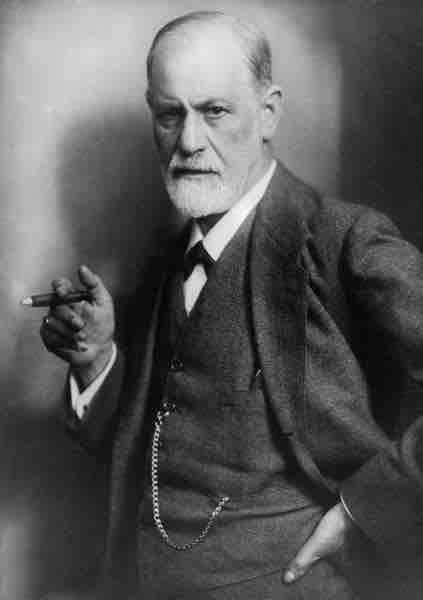Sigmund Freud
Sigmund Freud was a Viennese physician who developed his psychosexual theory of development through his work with emotionally troubled adults. Now considered controversial and largely outdated, his theory is based on the idea that parents play a crucial role in managing their children's sexual and aggressive drives during the first few years of life in order to foster their proper development.

Sigmund Freud
Sigmund Freud developed his theory of development based on five psychosexual stages.
Freud's Structural Model
Freud believed that the human personality consisted of three interworking parts: the id, the ego, and the superego. According to his theory, these parts become unified as a child works through the five stages of psychosexual development. The id, the largest part of the mind, is related to desires and impulses and is the main source of basic biological needs. The ego is related to reasoning and is the conscious, rational part of the personality; it monitors behavior in order to satisfy basic desires without suffering negative consequences. The superego, or conscience, develops through interactions with others (mainly parents) who want the child to conform to the norms of society. The superego restricts the desires of the id by applying morals and values from society. Freud believed that a struggle existed between these levels of consciousness, influencing personality development and psychopathology.
The id, ego, and superego
Freud believed that we are only aware of a small amount of our mind’s activities and that most of it remains hidden from us in our unconscious. The information in our unconscious affects our behavior, although we are unaware of it.
Psychosexual Stages of Development
For Freud, childhood experiences shape our personalities and behavior as adults. Freud viewed development as discontinuous; he believed that each of us must pass through a series of stages during childhood, and that if we lack proper nurturing and parenting during a stage, we may become stuck in, or fixated on, that stage. According to Freud, children’s pleasure-seeking urges (governed by the id) are focused on a different area of the body, called an erogenous zone, at each of the five stages of development: oral, anal, phallic, latency, and genital.
- Oral (0-1 years of age): During this stage, the mouth is the pleasure center for development. Freud believed this is why infants are born with a sucking reflex and desire their mother's breast. If a child's oral needs are not met during infancy, he or she may develop negative habits such as nail biting or thumb sucking to meet this basic need.
- Anal (1-3 years of age): During this stage, toddlers and preschool-aged children begin to experiment with urine and feces. The control they learn to exert over their bodily functions is manifested in toilet-training. Improper resolution of this stage, such as parents toilet training their children too early, can result in a child who is uptight and overly obsessed with order.
- Phallic (3-6 years of age): During this stage, preschoolers take pleasure in their genitals and, according to Freud, begin to struggle with sexual desires toward the opposite sex parent (boys to mothers and girls to fathers). For boys, this is called the Oedipus complex, involving a boy's desire for his mother and his urge to replace his father who is seen as a rival for the mother’s attention. At the same time, the boy is afraid his father will punish him for his feelings, so he experiences castration anxiety. The Electra complex, later proposed by Freud’s protégé Carl Jung, involves a girl's desire for her father's attention and wish to take her mother’s place.
- Latency (6-12 years of age): During this stage, sexual instincts subside, and children begin to further develop the superego, or conscience. Children begin to behave in morally acceptable ways and adopt the values of their parents and other important adults.
- Genital (12+ years of age): During this stage, sexual impulses reemerge. If other stages have been successfully met, adolescents engage in appropriate sexual behavior, which may lead to marriage and childbirth.
Criticism of Freud's Theories
Freud's psychosexual theory is controversial and has been thoroughly criticized. First, even though Freud's stages are related to children, he based most of his theory on his work with troubled adults; he in fact never worked with children. Second, many believed his work was too focused on human sexuality, especially his focus on the Oedipus complex and children's sexual desire for parents. Some critics of Freud believe the memories and fantasies of childhood seduction Freud reported were not real memories but constructs that Freud created and forced upon his patients. Finally, supporters of feminist theory believe Freud's theory to be sexist and overly reliant upon a male perspective (for example, his belief that girls developed sexual libido due to "penis envy").